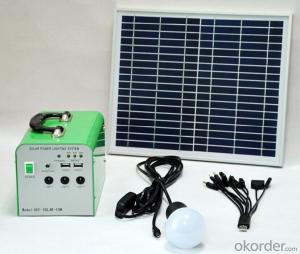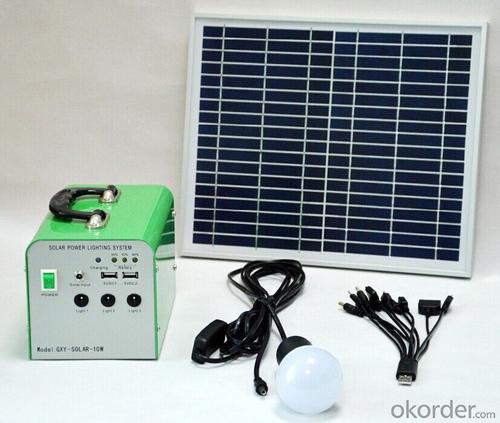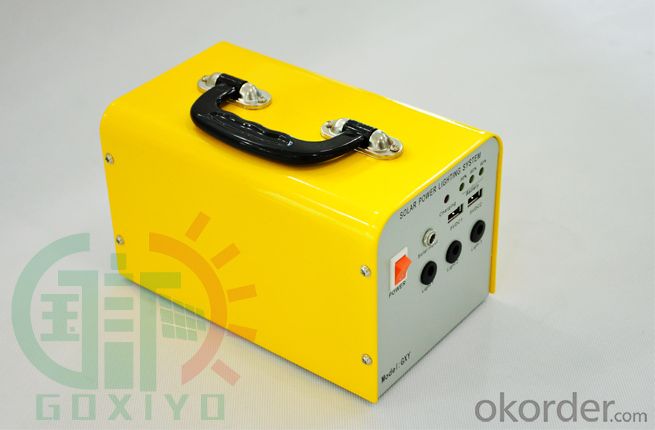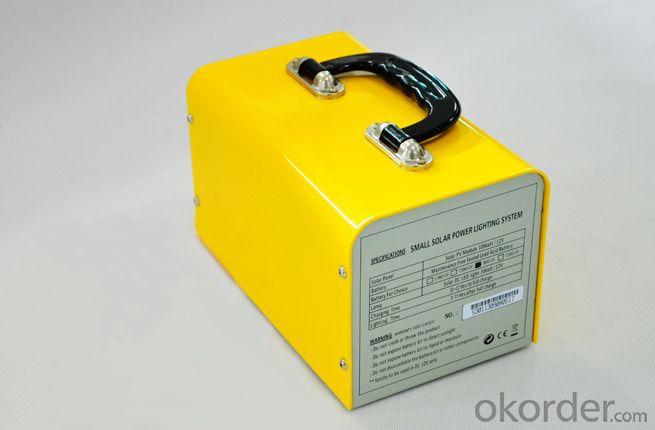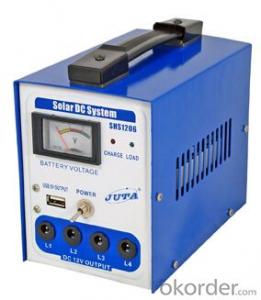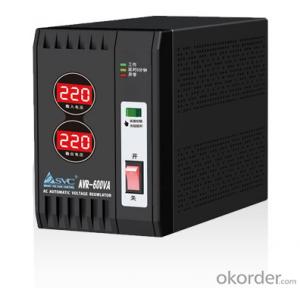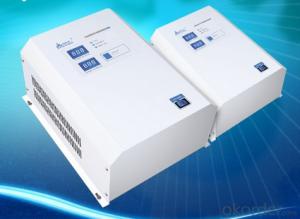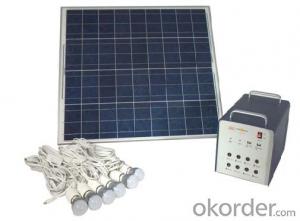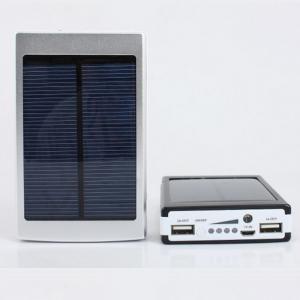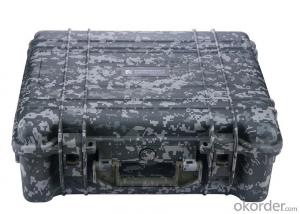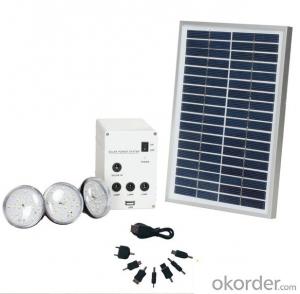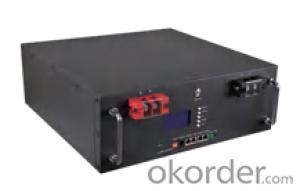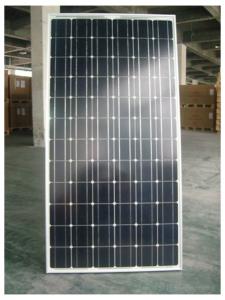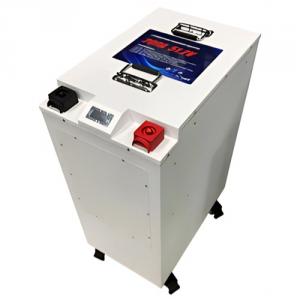10W Industrial Solar Energy Systems Small Charge Box for Solar Power Generation
- Loading Port:
- Shekou
- Payment Terms:
- TT OR LC
- Min Order Qty:
- 1 set
- Supply Capability:
- 9999 set/month
OKorder Service Pledge
OKorder Financial Service
You Might Also Like
Quick Details | ||||
Place of Origin: | Guangdong, China (Mainland) | Brand Name: | HYTN | |
Model Number: | HYTN-SMP10 | Output Voltage (V): | 12 | |
Specification: | Normal | Application: | Home | |
Work Time (h): | 24-26 H | Load Power (W): | 3w | |
Solar Power (W): | 10w | Work Time (h): | 24-26 H | |
Name: | 10w grid solar system | Other name: | new style 10w grid solar system | |
Solar Panel: | 10W 18V | Battery: | 7AH 12V | |
USB Connector: | 5V 2000MA | DC output: | 12V 1500MA | |
LED lamp: | 3w | DC Cable: | 5 meter DC cable, 5.5*2.1mm | |
Charging time: | 5-7 H | Working time: | 24-26 H | |
Packaging & Delivery | ||||
Packaging Details: 10w grid solar system Packing: 395MM*187MM*170MM, Carton box 7.5KG | ||||
Delivery Detail: 15~20 days | ||||
Specifications | ||||
10w grid solar system | ||||
Product Description | ||||
Specification of 10w grid solar system: | ||||
Solar Panel | 10w, 18v, High efficiency polycrystalline solar panel, with 25 years working life time, framed with strong alluminum alloy, easy to carry around. | |||
Battery | 7AH,12V,Sealed maintenance-free lead-acid battery | |||
USB Connector | (5V,2000MA),2pcs, work with cell phone, MP3,MP4,MP5 etc | |||
DC output | (12V,1500MA),could drive 12DV fan or other DC devices. | |||
Shell | 1.0mm thickness iron box coated | |||
LED lamp | 3w high effiency energy saving LED bulb. | |||
Battery Display | LED display showing battery volume | |||
DC Cable | 5 meter DC cable, 5.5*2.1mm. Connecting solar panel with power bank and 5 meter cable, 5.5*2.5mm,connecting LED lights | |||
Mobile Charging Cable | Various most commonly used USB charging adaptors for you to charge all kinds of mobile phones | |||
Charging,Using Time | 5-7 hours charging time,24-26 hours working time with 3w LED | |||
Accessories | 1 power bank, 1 solar panel with 5 meter cable, 1 3w LED bulb with 5 meter cable, multi-adaptor USB cable, 1 copy of manual. | |||
Packaging | 395MM*187MM*170MM, 7.5KG | |||
Range | Camping, power back-up, hunting, fishing, Charging mobile phones, lighting home and other outdoor activities. | |||
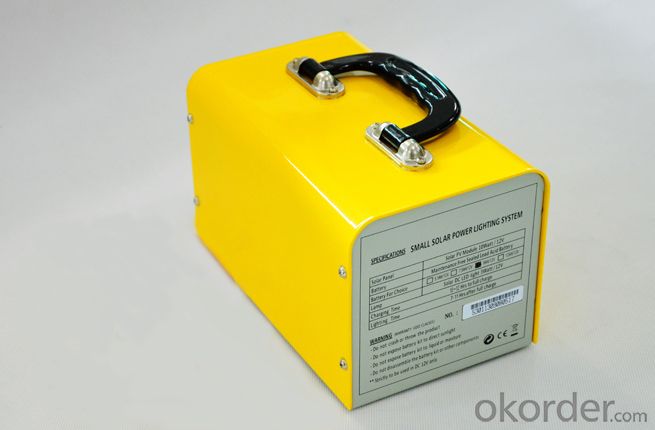
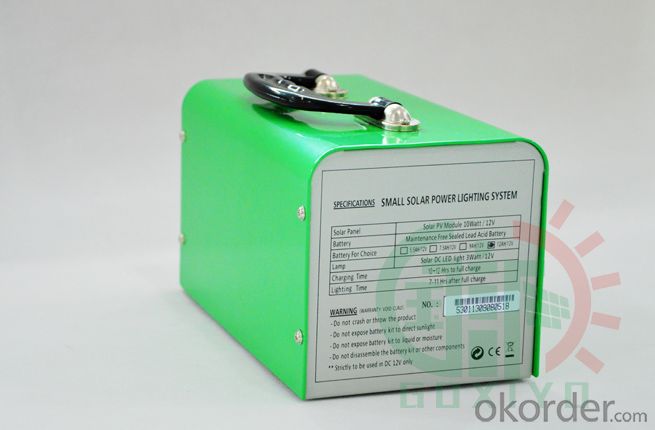
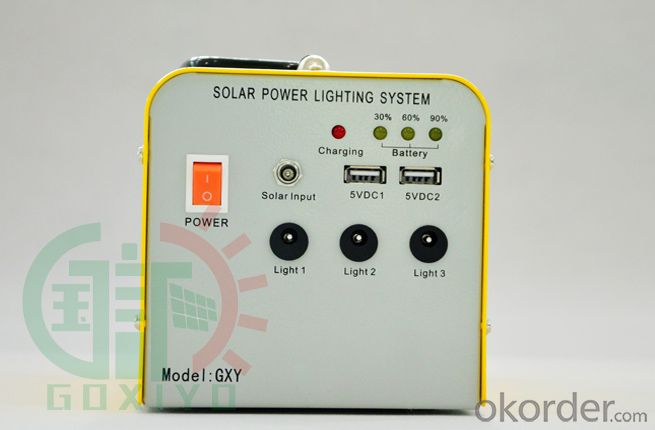
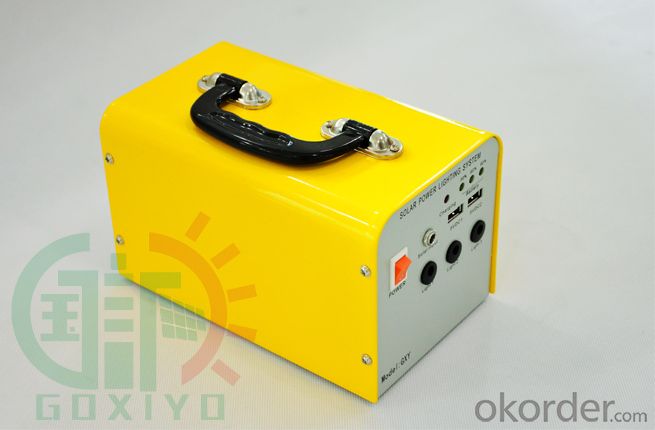
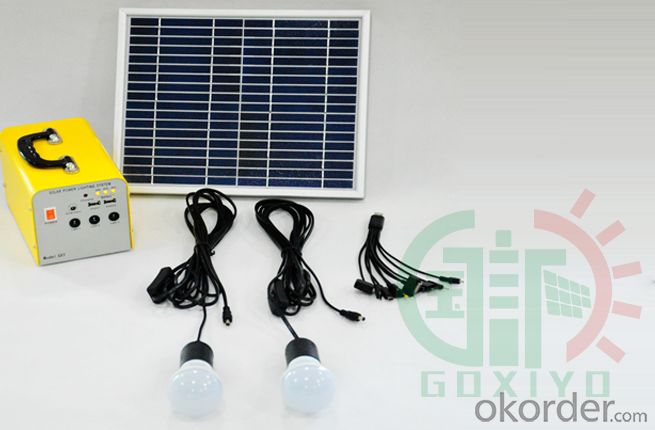
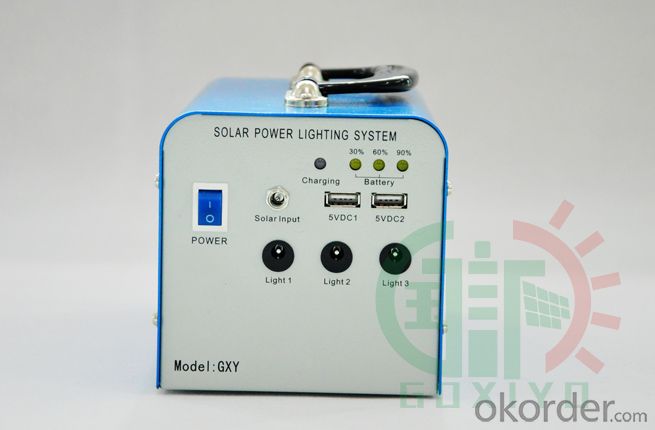
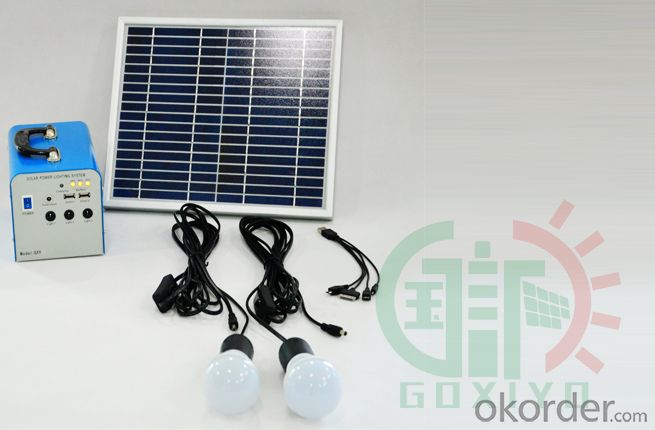
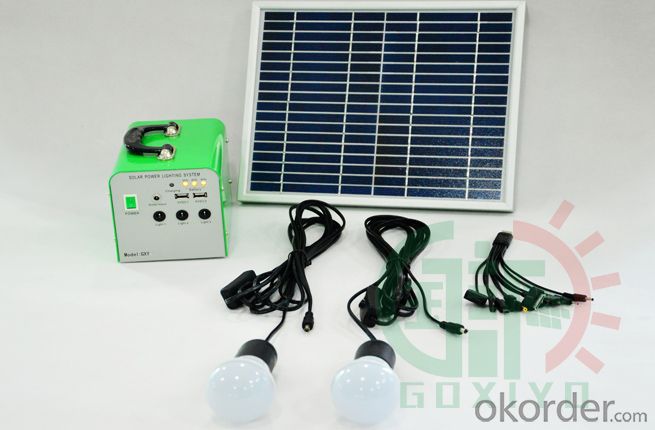
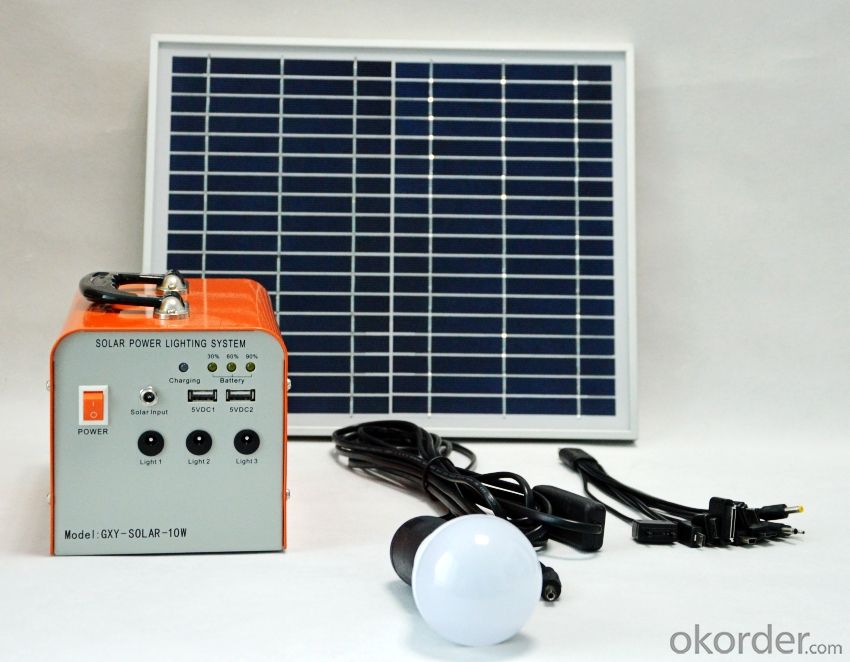
- Q: Can solar energy systems be used in areas with high electrical demand?
- Yes, solar energy systems can be used in areas with high electrical demand. With advancements in technology, solar energy systems have become more efficient and can now generate a significant amount of electricity. Additionally, solar energy systems can be combined with energy storage solutions to ensure a continuous power supply, even during periods of high demand. This makes solar energy a viable option for meeting the electrical needs of areas with high energy requirements.
- Q: Do solar energy systems require a backup generator?
- No, solar energy systems do not require a backup generator. They can store excess energy in batteries for use during periods of low sunlight or at night.
- Q: Can solar energy be used for large-scale power generation?
- Yes, solar energy can definitely be used for large-scale power generation. With advancements in technology and decreasing costs of solar panels, utility-scale solar power plants are being built around the world to generate electricity on a massive scale. These solar power plants can provide a significant amount of clean and renewable energy to meet the increasing power demands of cities and industries.
- Q: Can solar energy systems be used in areas with strict environmental regulations?
- Yes, solar energy systems can be used in areas with strict environmental regulations. In fact, solar energy is often encouraged and incentivized by such regulations due to its clean and renewable nature. These systems do not produce harmful emissions or pollutants, making them an environmentally friendly option that aligns with strict regulations aimed at reducing carbon footprint and promoting sustainable practices.
- Q: Can solar energy systems be used for powering off-grid educational institutions?
- Yes, solar energy systems can definitely be used for powering off-grid educational institutions. Solar panels can generate electricity by harnessing the sun's energy, providing a sustainable and reliable power source for off-grid schools. This not only helps reduce carbon emissions but also ensures continuous access to electricity, which is crucial for educational activities. Additionally, solar energy systems can be combined with energy storage solutions to provide power even during non-sunlight hours.
- Q: Can solar energy systems be used during power outages?
- Yes, solar energy systems can be used during power outages. However, it depends on the type of solar energy system being used. Grid-tied solar systems without battery storage are designed to shut down during power outages to prevent electricity from being fed back into the grid and endangering utility workers. On the other hand, solar energy systems with battery storage, commonly known as solar-plus-storage systems, can provide electricity during power outages by utilizing the energy stored in the batteries.
- Q: Can solar energy systems be used in conjunction with other renewable energy sources?
- Yes, solar energy systems can be used in conjunction with other renewable energy sources. This combination, known as hybrid renewable energy systems, allows for a more reliable and efficient energy generation. By integrating solar energy with sources like wind or hydro power, the system can compensate for fluctuations in energy production, ensuring a consistent supply of clean and renewable energy.
- Q: How much space is needed for installing a solar energy system?
- The amount of space needed for installing a solar energy system depends on various factors, such as the size and capacity of the system, the efficiency of the solar panels, and the energy requirements of the property. Generally, a typical residential solar energy system requires around 100 to 500 square feet of roof space, depending on the number and size of the solar panels. However, ground-mounted systems can also be installed if there is sufficient space available on the property. It is recommended to consult with a solar energy expert or installer to determine the specific space requirements based on individual needs and circumstances.
- Q: Can solar energy systems be integrated into building design?
- Yes, solar energy systems can be integrated into building design. In fact, integrating solar energy systems into building design is becoming increasingly common and is considered a sustainable and cost-effective approach to generating electricity. There are various ways to incorporate solar energy systems into building design, including rooftop solar panels, solar facades, and solar windows. Rooftop solar panels are the most commonly used method of integrating solar energy systems into building design. They can be installed on the roofs of buildings, either as standalone structures or integrated into the roof itself. These panels capture sunlight and convert it into electricity, which can be used to power the building or be fed back into the grid. Solar facades are another way to integrate solar energy systems into building design. These systems involve installing solar panels on the outer walls of buildings. They not only generate electricity but also act as a protective layer, reducing heat gain and improving the building's energy efficiency. Solar windows are a relatively new development in building-integrated solar energy systems. These windows are designed with built-in transparent solar cells that can capture sunlight and generate electricity while still allowing natural light to enter the building. Solar windows have the potential to revolutionize building design by seamlessly integrating renewable energy generation into the building envelope. Integrating solar energy systems into building design offers several advantages. First and foremost, it allows buildings to generate their own electricity, reducing reliance on fossil fuel-based power sources and lowering utility bills. Additionally, it contributes to the reduction of greenhouse gas emissions, promoting a cleaner and more sustainable environment. Moreover, solar energy systems can enhance the aesthetic appeal of buildings, turning them into visually striking examples of sustainable architecture. In conclusion, solar energy systems can indeed be integrated into building design. With various options available, including rooftop solar panels, solar facades, and solar windows, buildings can generate their own clean, renewable electricity, reduce their carbon footprint, and contribute to a more sustainable future.
- Q: Can solar energy systems be used for powering off-grid eco-villages?
- Yes, solar energy systems can certainly be used to power off-grid eco-villages. Solar panels can generate electricity from the sun's energy, which can then be stored in batteries for later use. This renewable and clean source of energy is ideal for eco-villages that prioritize sustainability and reducing their carbon footprint. With advancements in technology, solar energy systems have become more efficient and affordable, making them a viable option for powering off-grid communities.
Send your message to us
10W Industrial Solar Energy Systems Small Charge Box for Solar Power Generation
- Loading Port:
- Shekou
- Payment Terms:
- TT OR LC
- Min Order Qty:
- 1 set
- Supply Capability:
- 9999 set/month
OKorder Service Pledge
OKorder Financial Service
Similar products
Hot products
Hot Searches
Related keywords
